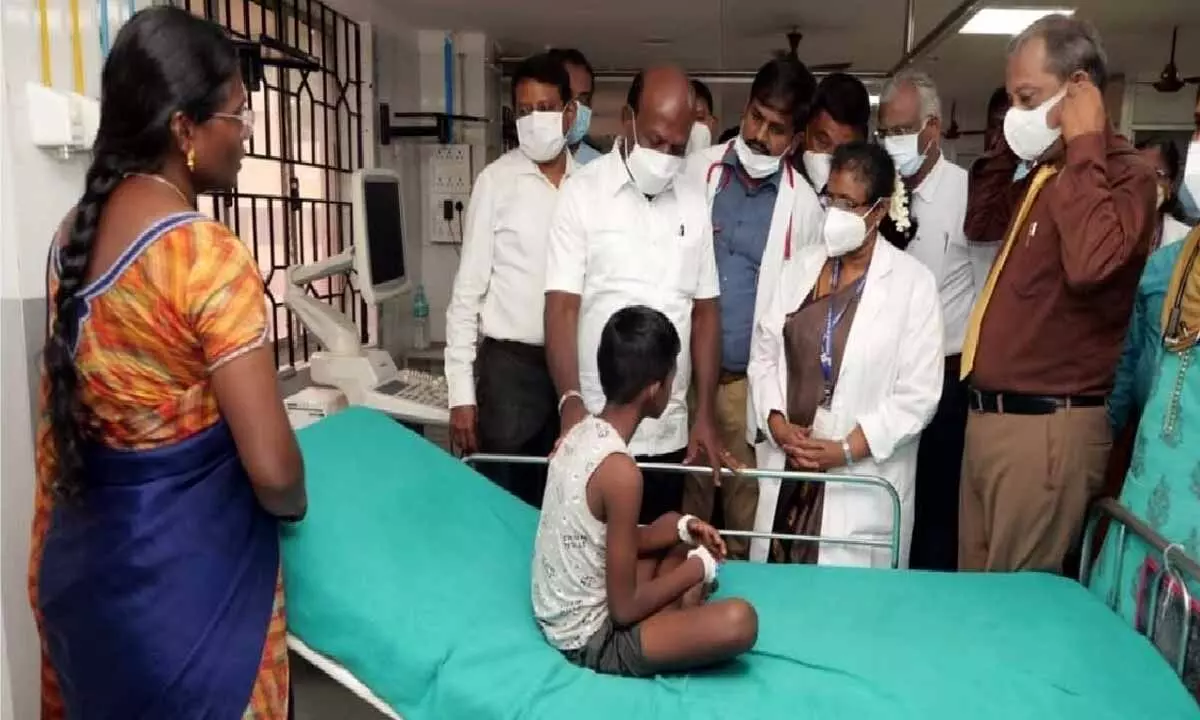282 People Has Been Receiving Treatment For H1N1 Flu In Tamil Nadu

A total of 282 people have tested positive for H1N1 influenza and are currently receiving treatment throughout the State. (Photo/thehindu)
- A total of 282 people have tested positive for H1N1 influenza and are currently receiving treatment throughout the State.
- The Minister stated that of the 282 patients, 13 were admitted in government hospitals, 215 in private institutions, and 54 were placed in home isolation
According to Health Minister Ma. Subramanian on Thursday, a total of 282 people have tested positive for H1N1 influenza and are currently receiving treatment throughout the State.
The Minister stated that of the 282 patients, 13 were admitted in government hospitals, 215 in private institutions, and 54 were placed in home isolation shortly after touring the fever wards at the Institute of Child Health (ICH) and Hospital for Children, Egmore.
Mr. Subramanian stated that less dengue cases have been reported this year compared to prior years. 243 people are receiving dengue treatment in the State right now. The Minister emphasised that ICH, which has a total of 837 beds, does not have a bed shortage. Only 129 of the 637 kids in for various treatments—out of all the kids—were there for fever treatment.
He pointed out that before the monsoon, youngsters frequently report having fever. He further added that due to lockdown, masking, and physical separation, the COVID-19 pandemic's influence over the past two to three years has been lessened. In contrast to the current situation, the number of cases was two to three times greater in 2017 and 2018. He stressed that no need for alarm or concern exists.
Meanwhile, according to the Minister, influenza symptoms include fever, sneezing, coughing, cold, headache, sore throat, and exhaustion. In order to safeguard youngsters, Mr. Subramanian noted that compliance with the COVID-19 routine of masking, maintaining physical distance, and frequent handwashing had slowed down.
Next Story














